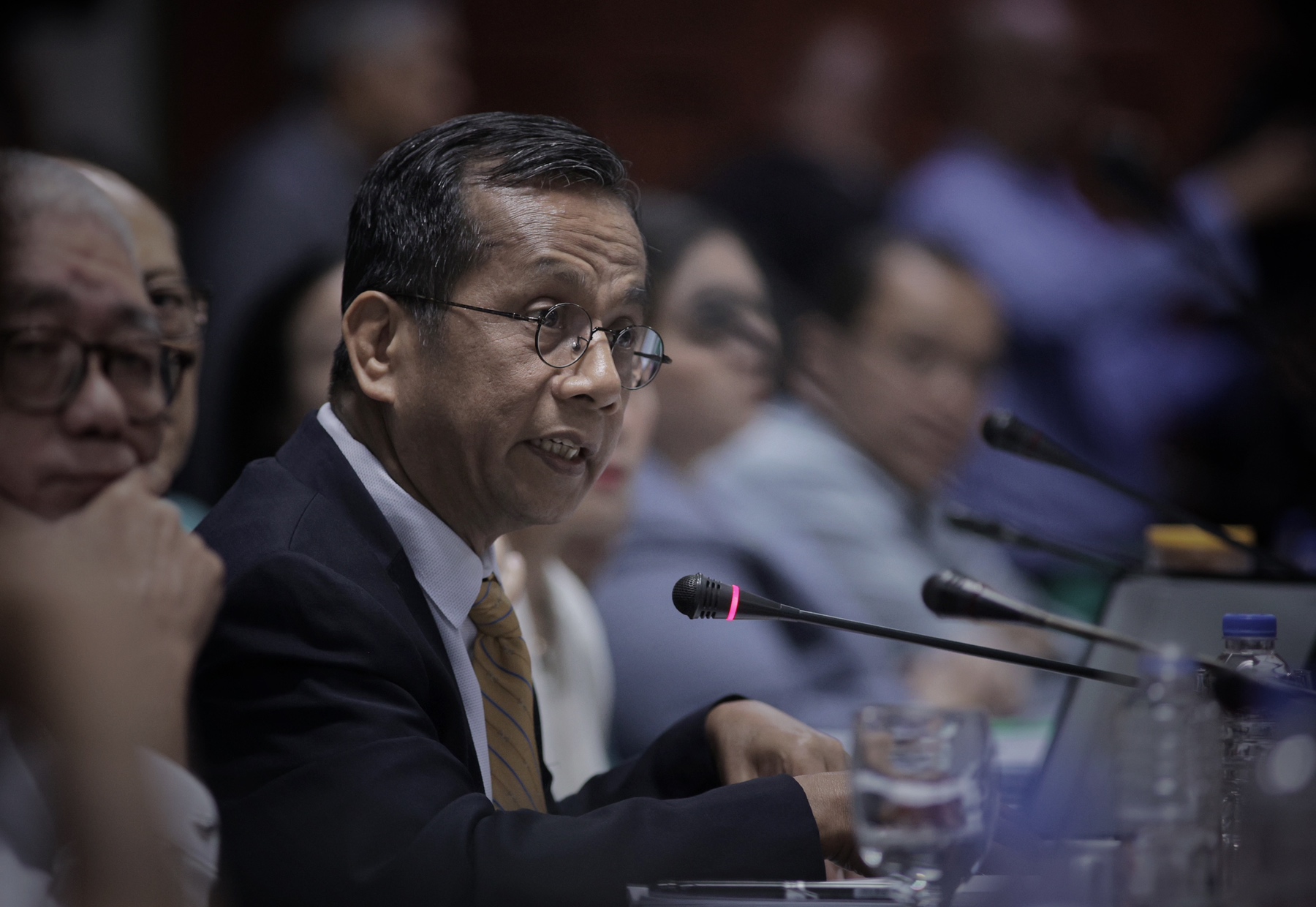Gov't urged to adopt contingency plan to counter rising prices of rice
The government should come up with a comprehensive contingency plan to ensure rice supply in the country is sufficient and will counter its rising price.

National Economic and Development Authority (NEDA) Secretary Arsenio Balisacan attends the Development Budget Coordinating Council's (DBCC) briefing on the 2024 National Expenditure Program (NEP) at the Senate Committee on Finance's hearing on Tuesday, Aug. 15, 2023. (Senate PRIB Photo)
“I would like to urge the government to seriously look into the situation because it's not only going to affect inflation but more importantly food on the table for our own constituents,” Sen. Sherwin Gatchalian made the call at the recent Senate briefing of the Development Budget Coordination Committee (DBCC) on the 2024 national budget.
At the same time, Gatchalian urged state economic managers to submit to the Senate the contingency plan they have put in place, saying India’s recent announcement of halting rice exports could further tighten supply, and drive inflation higher.
“Submit to us a contingency plan that you have put in place because I’m really worried that this export ban from other countries will affect us not only in terms of supply but also in terms of prices,” he emphasized.
The senator said it is imperative to find out if the government has already secured enough rice supply for the near and medium term given disruptions of supply in the global market.
He said it is also important for the government to also include programs to cushion the effect of typhoons and the El Niño phenomenon considering that the country experiences an average of 20 typhoons every year.
It is also important to anticipate the impact of the El Niño which is expected to peak in the country in the first quarter of next year.
Earlier, President Ferdinand “Bongbong” Marcos Jr., concurrent Department of Agriculture (DA) secretary, issued a warning saying the government will run after hoarders and price manipulators after the average price of rice in the local market reached P45 to P50 per kilo.
For his part, Sen. Francis “Chiz” Escudero asked Secretary Arsenio Balisacan, National Economic and Development Authority (NEDA) secretary, to advise the President not to announce how much rice the Philippines intends to import.
Escudero lamented the Executive department’s announcement of its plans to import 1.3 million metric tons of rice after President Marcos expressed his concerns over the combined impact of Typhoon ‘Egay,’ the El Niño phenomenon, and Russia’s withdrawal from the Black Sea Grain initiative.
Escudero said making such announcement drives the world market prices of rice.
“Kindly (tell him) not to announce how much rice we will import because definitely, it is increasing the world market prices of rice,” the senator urged NEDA.
Sen. Cynthia Villar, on the other hand, urged government agencies to prioritize local agricultural produce in implementing the National Rice Program (NRP).
Villar, chairperson of the Senate Committee on Agriculture, Food and Agrarian Reform, lamented how the DA and concerned agencies favor imported agricultural inputs for the NRP.
"Our National Rice Program has become overdependent on imports when we should be depending on local production," Villar pointed out.
She said the government should fund and equip local industries to produce inbred seeds and organic fertilizers within the country, instead of relying on rice importation.